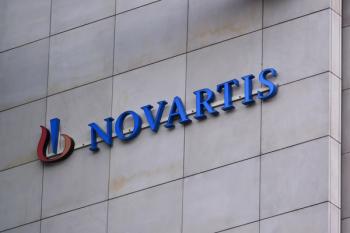
- Pharmaceutical Executive-01-01-2021
- Volume 41
- Issue 1
JPM Conference Goes Virtual: What Will it Mean?
Tone still set on the market catalysts to look for in 2021.
Normally this month, 12,000 participants in the healthcare industry (senior management, bankers, investors, analysts, etc.) converge in San Francisco for the annual J.P. Morgan Healthcare Conference.
As was the case with Woodstock, all the “players” are there and they go at it day and night, but not this year. While we have all gotten quite adept and Zoom calls and meetings, the magic that happens at JPM is usually the personal interactions at the party-hopping that takes place at the end of the very long days. The impromptu meet-ups and opportunities to run into colleagues who might be too busy at JPM but invite a “let’s set up a call or have lunch soon.” These often translate to a busier-than-usual schedule for the coming months and often lead to new business.
Sadly, we all miss the human contact; while many have shared “JPM fatigue” over the past few years, and some have or have threatened to sit a year out, I think we’ll all look back on the many fond memories this year, as the conference goes virtual. I don’t think it will be as impactful. I am devastated to not host my Annual Fabulous Pharma Females dinner at Cotogna and I will miss my dear friends and colleagues.
Most look to JPM to set the tone for the year, and in that regard, it is all about the business updates and upcoming catalysts—and that will still be the case this year as well.
Biotech outperformed the market in 2020 (S&P 500 +16% vs. a +26% increase in the NBI and an even more impressive +48% surge in the XBI) and looks well positioned to continue the momentum. However, this year is starting out with some overhangs, including a Senate run-off race with implications for healthcare policy, drug pricing, as well as a slower than expected rollout of the COVID-19 vaccines.
As we head into a new Biden administration, questions arise about its short-term and long-term agendas. The planned nomination of Xavier Becerra as Secretary of HHS, who served on the House Ways and Means Committee that helped to craft the Affordable Care Act and has long supported moving the country to a government-run Medicare for All healthcare system, is concerning. As attorney general, Becerra vigorously defended the Affordable Care Act, filing numerous lawsuits against the Trump administration and led the defense of the law in the Supreme Court.
Innovation in healthcare remains high and that has been a big shot in the arm for the industry’s reputation and stock price performance. Hopefully, that tempers the noise and substance around price reforms or controls, but it is always in the mix.
Unfortunately, the COVID-19 vaccination rollout has been slow and the steady rise in the number of new cases and spreading events is concerning.
Investors will likely continue to focus on the short-term for alpha around a catalyst rich 1H21. The next wave of new platform technologies, including gene editing, machine learning/artificial intelligence, and novel classes of targeted oncology agents, could be validated this year.
M&A optionality remains high as does the IPO calendar and these were big drivers of outperformance last year and are likely to remain so this year. In the first big biopharma M&A of 2021, Angelini will pay $610 million, with $350 million in sales milestones, to acquire Switzerland’s Arvelle.
A record 59 new drugs were approved last year and nearly half of them were for 24 biotech companies for whom these represent a first and, hence, their inauguration into commercial status. This reflects on an industry that continues to innovate and mature. It will be interesting to see how many of these launches go. The transition from a research company valued on data to a commercial one valued on revenues, profitability, and the rate of change in both, can often be bumpy and investors can get very grumpy when companies fall short of expectations.
In the inimitable words of Bette Davis’ character Margo Channing in All About Eve, “Fasten your seat belts...”
Barbara Ryan is Founder, Barbara Ryan Advisors, and a member of Pharm Exec’s Editorial Advisory Board
Articles in this issue
about 5 years ago
2021 in Focus: Pharm Exec’s Annual Industry Outlookabout 5 years ago
‘Breakthrough’ Balancing Act: The Decline of the Value Propositionabout 5 years ago
Prescriber Hesitancy on COVID Vaccinesabout 5 years ago
More Cloud on the Horizon for Pharmaabout 5 years ago
A New Year for Sustainable Governanceabout 5 years ago
Bound By Bloodabout 5 years ago
Pharmaceutical Executive, January 2021 Issue (PDF)about 5 years ago
Pharma in Spotlight as Pandemic Continues in 2021about 5 years ago
Six Degrees of 2020about 5 years ago
Why Investing in Tech Education Is ImportantNewsletter
Lead with insight with the Pharmaceutical Executive newsletter, featuring strategic analysis, leadership trends, and market intelligence for biopharma decision-makers.




